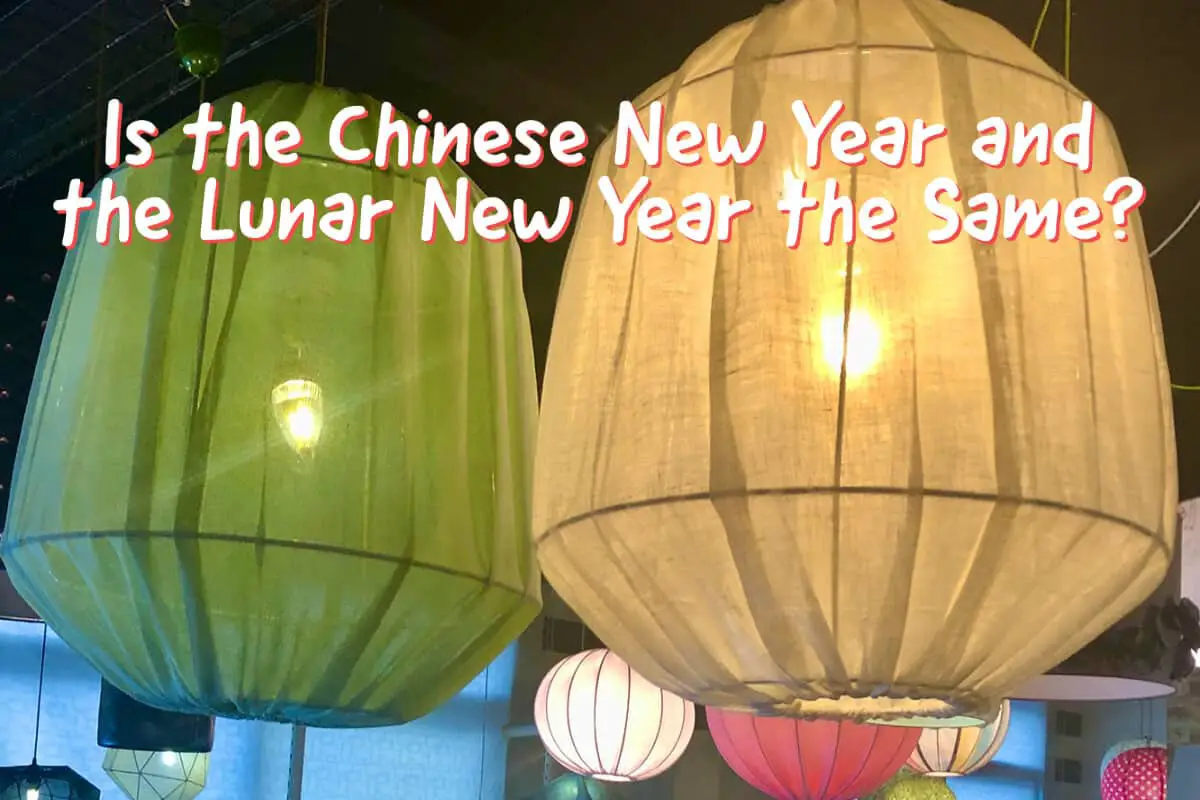Each January or February, many manufacturers, and offices in Asia take a long break for a festival they call the New Year. Many westerners may get confused as many different names are used for this important Asian holiday.
The Chinese New Year and the Lunar New Year holidays are both based on the Chinese Lunar Calendar New Year dates. The New Year dates for the Chinese New Year and Lunar New Year are the same, but the traditions and how each Asian country celebrates and calls the New Year festival is not.
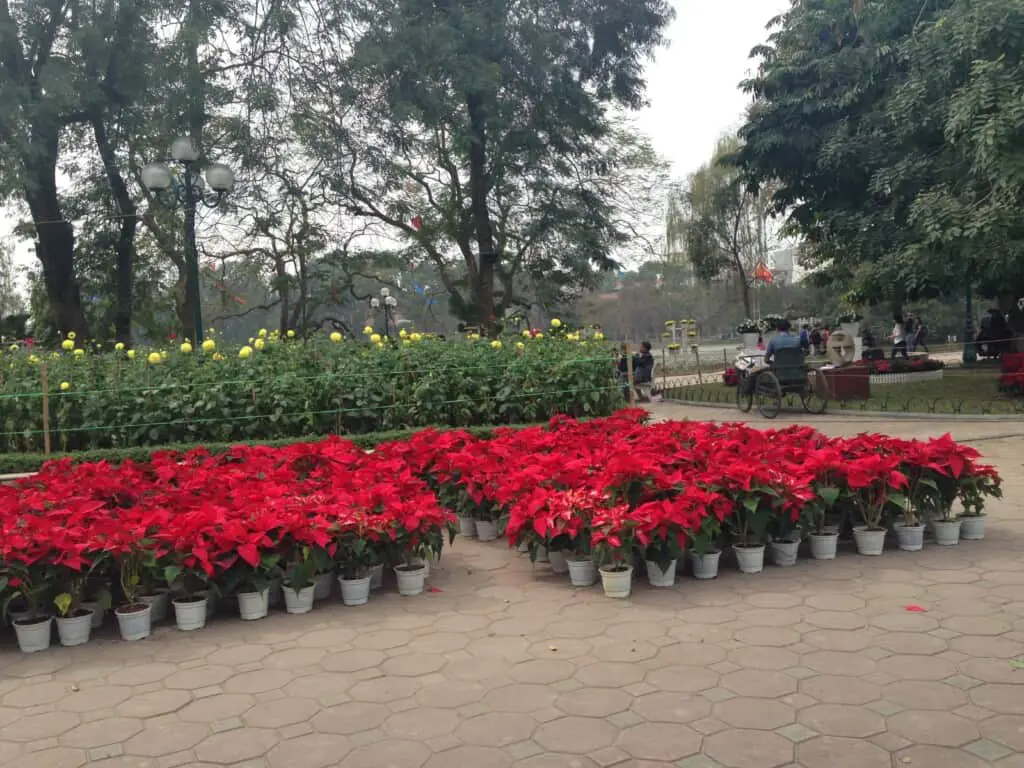
Chinese New Year Vs. Lunar New Year
In China, the Chinese will refer to the Chinese Lunar New Year Holiday as the Chinese New Year or the Spring Festival. In Hong Kong, the holiday is officially referred to as the Lunar New Year; in Vietnam, it is known as TET.
They are essentially the same holiday dates but are called different names. Each country will also have its own traditions, so this is where it can become confusing as to whether they are exactly the same holiday or different. The truth is that the dates that they celebrate the Lunar New Year are the same but what each country calls the holiday and how each country observes the holiday is different.
Because this holiday is based upon the Chinese Lunar Calendar, it is a holiday that is widely celebrated throughout the Asian region. There are a few countries in Asia that are not touched by this New Year Holiday.
It is common for offices, factories, shops, and restaurants to close down for weeks at a time during the holiday. People will travel in huge numbers, many of them going home to see their families. Despite the different names used, for the holiday, there are some common themes throughout Asia for this new year holiday celebration.
Here are some common themes of celebrating the Chinese Lunar New Year Holiday in the Asian region:
- Tradition – This holiday is steeped in tradition that goes back for thousands of years. Since almost the beginning of time or at least the beginning of the Chinese lunar calendar, families have gotten together during this holiday. Throughout Asia, the family is at the center of this holiday tradition.
- Families – The Chinese Lunar New Year is a time to honor families. There are certain days of the New Year when you go to see the oldest relative, friends, and others. It is the time period to bring families together as there are many family feasts during this period. This is also one of the reasons why this holiday extends for such a long period of time. They are just so many traditions that must be met and family, extended family, and friends that need visiting that all of this can take time and cannot be done in a single day.
- Heavenly Deities – This is a time to honor many of the Asian heavenly deities. In Vietnam, the Buddhist temples are usually full during this time period with people coming to worship in the temples.
- Ancestor Worship – This is also a time when many families will gather together to remember their ancestors. Many Asian cultures have Family Books with the history of many generations of their families written down in the books. Some families may readout of these books to remember their ancestors.
To discover more about the family books and Vietnamese Genealogy we recommend you read the blog Vietnamese Genealogy, Searching for Your Family History in Vietnam by clicking here.
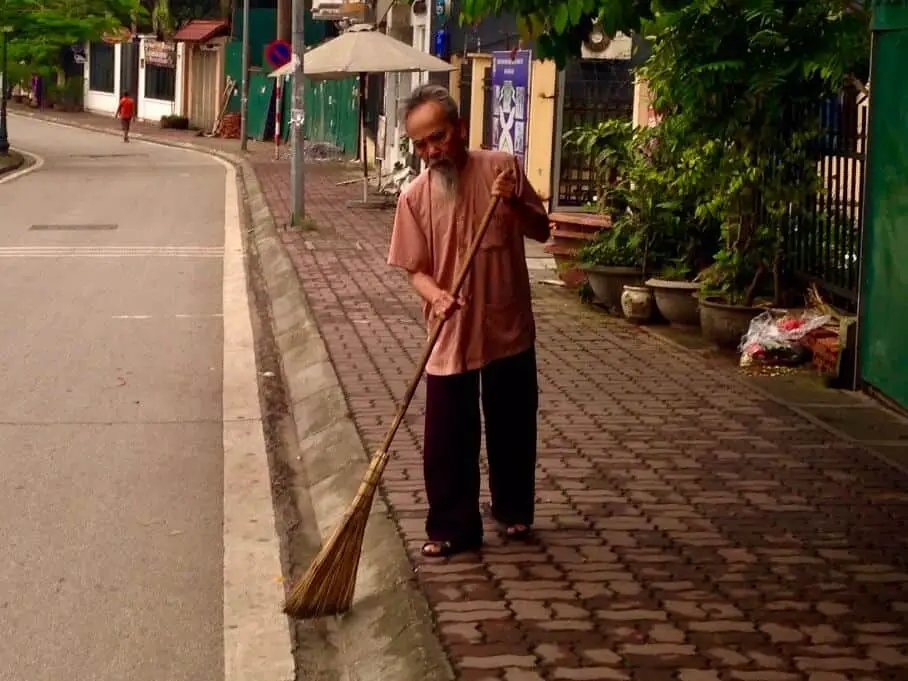
Some Traditions of the Lunar New Year
Just like each Asian country will celebrate the Lunar New Year holiday slightly differently, there are still important traditions and themes that run through the Lunar New Year holidays.
Here are some important traditions that we have seen throughout almost all countries throughout Asia:
- Spring Cleaning – Houses are thoroughly cleaned to rid them of any inauspicious breaths, or bad things, and even thoughts that might have collected over the old year. This is especially important if you have had any bad events happen over the last year. Cleaning is also looked at to appease the gods who are thought to come down from heaven to make the inspections of the houses and the households.
- Ritual Sacrifices – Ritual sacrifices are offered to the gods and ancestors. These sacrifices are of paper and usually burned by the side of the road. You can see people burning paper money, cars, houses, and many other things they think the gods or ancestors may want or need.
- Lucky Messages – You can see people scroll and print lucky messages with red paper and black writing on gates and doors of their houses and even offices.
- Firecrackers – Firecrackers are set off at what is considered the most auspicious time to help frighten off evil spirits.
- Red Lucky Packets – Red Lucky Packets are usually given to the children by their elders. This is said to bring good luck.
- Flowers and Orange Trees – In many places, flowers or spring blossoms are also an important symbol and some small orange trees. The flowers are kept near the homes’ entrances, at ancestral altars, and as a decoration inside the homes. The orange tree or the orange fruit is a symbol of wealth and is associated with being prosperous. In many parts of Asia, they will hang money on the orange tree as a symbol of wealth and good luck during the upcoming coming year.
Many of these rites during this time period are said to bring good luck to the households and the family and also to give long life to the family – in particular, the parents and grandparents.
Food for the Lunar New Year
Throughout Asia food is an essential part of the Lunar New celebrations; many of the foods that are eaten are done so with a purpose and a symbolic meaning.
- Lunar New Years’ Eve Food – During the Lunar New Year Eve the extended family would usually join around the table and the last course of the year includes fish. This fish is to symbolize abundance; some families believe because of the symbolism the fish should not be eaten.
- Long Noodles – In the first five days of the New Year people would eat long noodles to symbolize a long life.
- Round Dumplings – On the 15th and final day of the New Year, people eat round dumplings shaped like a full moon to symbolize family unit and perfection.
There are so many important traditions and food, so there is no wonder tha the that the Lunar New Year Holiday can stretch from not just one day but in many cases to weeks or a month.
In China where there is a lot of migrant labor, this may be one of the only times that the migrant workers can go home and see their families. Also even today many Chinese factories may only have off 1 or 2 days a month;. This is becuase the workers prefer to take a long extended holiday during the Lunar New Year period.
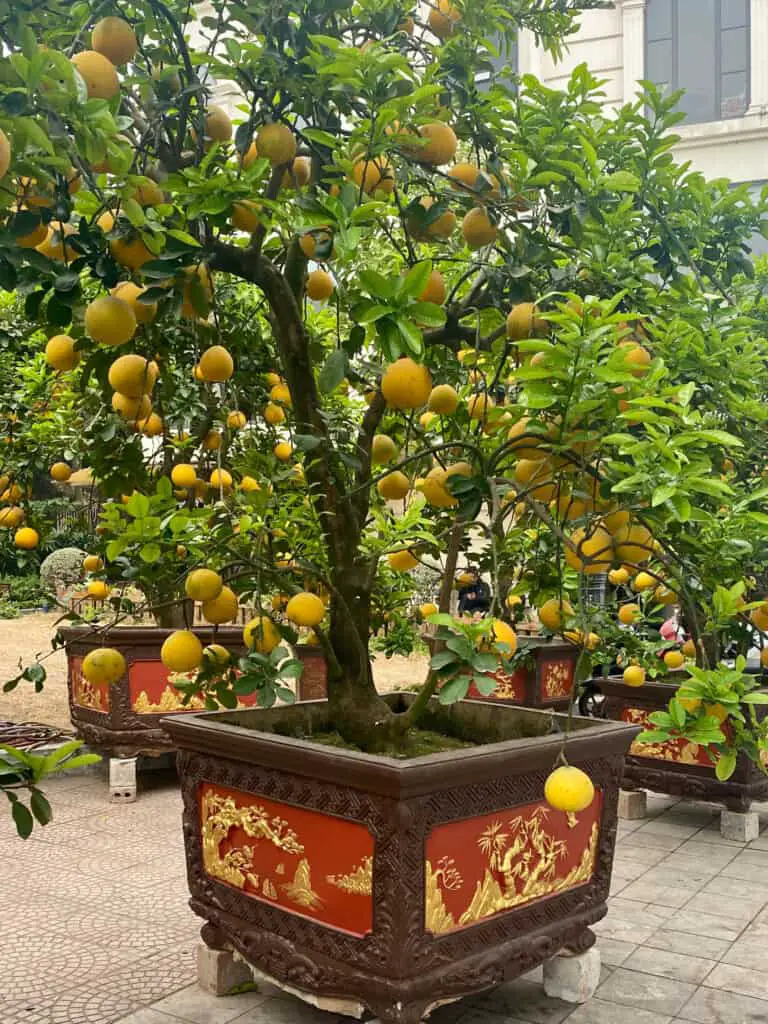
Things You Should Not Do During the Lunar Chinese New Year
An essential element of the Lunar New Year is luck or about being lucky. In many Asian countries some people are very superstitious and they believe that the way the new year is celebrated can determine their luck or success for the coming year.
In some places in Asia especially in China, Hong Kong, Taiwan, and Vietnam there can be many superstitions and taboos associated with the lunar new year celebratons.
Here are the superstitions and taboos for the first day of the Chinese New Year:
- No Porridge – Eating porridge is thought to bring poverty.
- No Unlucky Words – Do speak any unkind, mean, or spiteful words and always smile; included in this is not to use words like death. It will bring bad luck.
- No Hair Washing – Do not wash your hair as it can wash away the good luck.
- No Clothes Washing – As with washing your hair, it can also wash away the good luck.
- No Needle Work – Needlework on the first day of the New Year is thought to deplete wealth.
- No Sweeping – Sweeping on the first day of the lunar new year is thought to sweep away wealth.
- Do Not Take Out The Garbage – Taking out the garbage symbolizes dumping out the good luck and fortune from the house.
- Married Daughter is Not To Visit – On the first day of the Lunar New Year, the married daughter should not visit her parents as that is thought to bring bad luck and economic hardship to her parents. She should visit them on the 2nd day of the New Year.
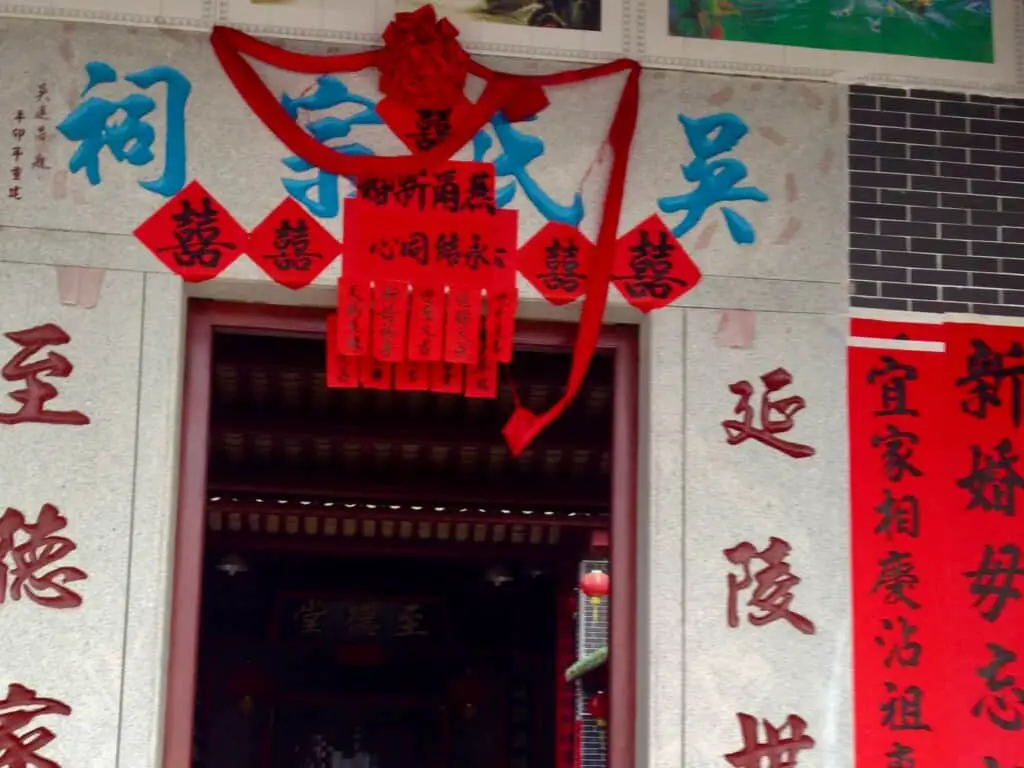
Here are some superstitions and taboos during the entire Lunar New Year celebration period (Day 1 to 15)
- No crying – Crying is thought to bring bad luck. Parents are also encouraged to keep their children from crying, which will bring bad luck to the family.
- No killing – Killing of any kind should be avoided, including animals. This is because blood and the knife used for killing are considered bad omen as they cause misfortunes.
- Do not break things as dishes – The breaking of dishes, tools, or other things is considered bad luck and associated with a loss of wealth.
- No Hospital visits – Unless it is an extreme emergency, people will avoid visiting the hospital as it is thought to bring bad luck and illness for the coming year,
- Avoid Theft – Avoid any theft as it brings bad luck with wealth for the entire year.
- Do not borrow money – Do not borrow any money during this period and have all debts paid by New Year Eve; if not, there will be bad luck throughout the year.
- Keep the rice jar full – Keep your rice jar full during the Lunar New Year period; to have it empty is a bad omen.
- Do not wear damaged clothes – If you wear damaged clothes, it is said to bring bad luck.
- Do not wear black and white clothes – black and white are for funerals and mourning so this can also be a bad omen to wear black and white clothes.
- Do not give gifts as clocks, scissors, or pears – Do not give gifts as clocks, scissors, knives, or pears as they have a bad meaning during this time period in the Chinese culture.
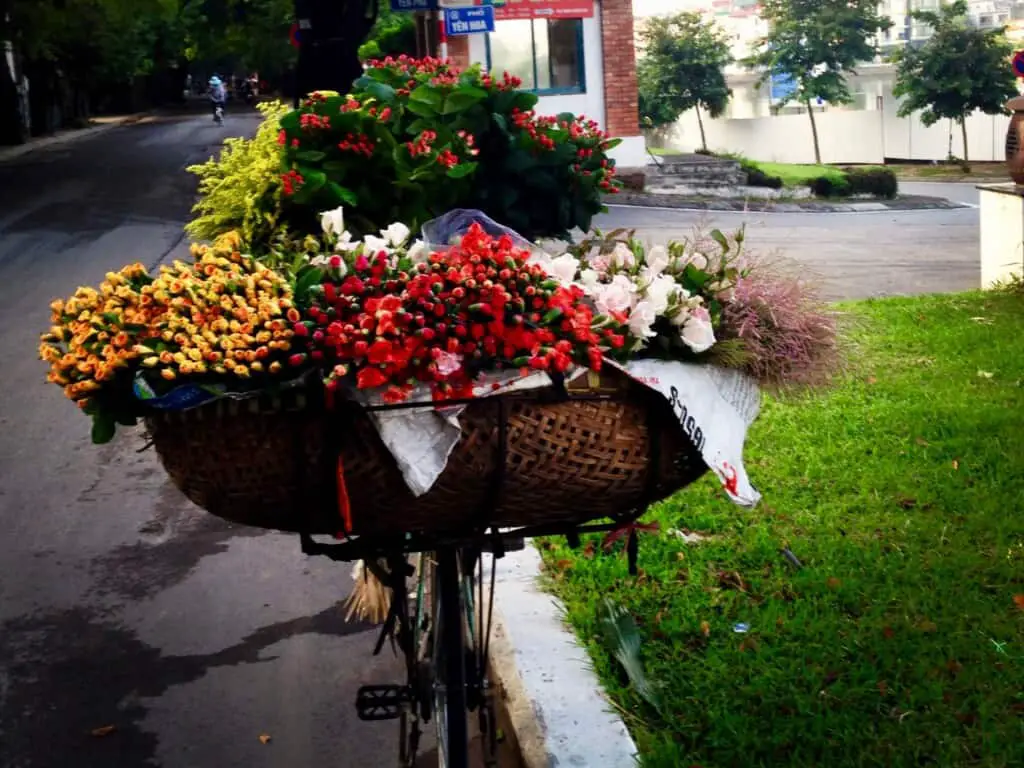
Countries With Lunar New Year Holidays
Here are some countries that observe the Lunar New Year and the names they may use for the festival:
- China – Spring Festival or Chinese New Year
- Taiwan – Spring Festival or Lunar New Year
- Hong Kong – Lunar New Year.
- Korea – Korean New Year (seol)
- Vietnam – Tet
- Tibet – Losar
It is also celebrated in any country with a large Chinese population like Singapore, Indonesia, Malaysia, Myanmar, Thailand, Cambodia, Philippines, Mauritius, North America, and Europe. Many of these Asian countries with large Chinese populations will also have a public holiday during the Chinese New Year period.
The Chinese New Year Holiday Dates
What is confusing for most westerners is when the Chinese New Year seems to change every year. This can be especially confusing if you are manufacturing home decor or home furnishing, or other products. It is hard to know and plan around the Lunar New Year holiday dates.
Below is a list of some of the upcoming and past Lunar New Year dates. This may not be the exact dates the offices or manufacturers are off work but it will give you an idea of where the Lunar New Year falls in the Gregorian calendar and what zodiac animal will be celebrated for that year.
| Year | Date Lunar New Year | Day of Week | Zodiac Animal |
| 2021 | 12 Feb 2021 | Friday | Ox |
| 2022 | 1 Feb 2022 | Tuesday | Tiger |
| 2023 | 22 Jan 2023 | Sunday | Rabbit |
| 2024 | 10 Feb 2024 | Saturday | Dragon |
| 2025 | 29 Jan 2025 | Wednesday | Snake |
| 2026 | 17 Feb 2026 | Tuesday | Horse |
| 2027 | 6 Feb 2027 | Saturday | Goat |
| 2028 | 26 Jan 2028 | Wednesday | Monkey |
| 2029 | 13 Feb 2029 | Tuesday | Rooster |
| 2030 | 3 Feb 2030 | Sunday | Dog |
| 2031 | 23 Jan 2031 | Thursday | Pig |
| 2032 | 11 Feb 2032 | Wednesday | Rat |
| 2033 | 31 Jan 2033 | Monday | Ox |
| 2034 | 19 Feb 2034 | Sunday | Tiger |
| 2035 | 8 Feb 2035 | Thursday | Rabbit |
| 2036 | 28 Jan 2036 | Monday | Dragon |
| 2037 | 15 Feb 2037 | Sunday | Snake |
| 2038 | 4 Feb 2038 | Thursday | Horse |
| 2039 | 24 Jan 2039 | Monday | Goat |
What is the Chinese Lunar Calendar?
To understand the Chinese Lunar New Year, it is good to understand a bit about the Chinese Lunar Calendar. What can be confusing for many foreigners is that the Chinese Lunar New Year celebration dates change every year. This is because the dates of celebration do not follow the Gregorian calendar, which is the standard calendar used worldwide.
The Chinese Lunar Calendar is officially known as the Agricultural Calendar, or also the traditional calendar. It uses astronomy to calculate the years and months. This calendar will also be used by the Chinese to decide what are the most auspicious days for events like a wedding, funeral, moving or even starting a new business.
Here are a few interesting facts about this Lunar New Year Calendar:
- Beginning Days – Days will begin and end at midnight, according to the calendar.
- Months – The months begin on the day of the new moon. So this calendar is calculated by the moon cycle. When Chinese New Year falls in January, those years will have intercalary months, inserted to harmonize with the solar year.
- Year – the years will begin on the second (or third) new moon after winter.
- Solar terms are used – A solar term is any 24-hour period that can match a particularly significant date or some natural phenomenon.
- Zodiac animals – Each year will have one of the 12 Chinese zodiac animals associated with it. If you are born in January or February in the Gregorian calendar, to know what year of the animal you are, you also need to know what day the Chinese New Year started on the date of your birth to know exactly what Chinese Zodiac animal sign you were born under. The Zodiac animals are the Snake, Horse, Goat, Monkey, Rooster, Dog, Pig, Rat/Mouse, Ox, Tiger, Rabbit, and Dragon.
- Heavenly Stems and The Five Elements – along with the 12-year cycle of zodiac animals, there is also a 10-year cycle of heavenly stems associated with the calendar and the five elements of Chinese astrology called wood, fire, earth, metal, and water. These elements are rotated each year and are also known as yin and yang. For example, there would be a Yang Wood, Yin Wood, Yang Fire, Yin Fire, etc. This will repeat every 60 years for every animal. The yang fire rat happened in 1936, and the yang fire rat does not happen again until 1996 (which is 60 years from the first time it happened).
The Lunar Chinese New Year is a significant festival for many Asian countries; it is usually the most important holiday. When you understand the Lunar New Year festival, the celebrations, and all the obligations involved, you can better understand why so many Asian workers prefer to have time off or take an extended holiday during this period of time.

